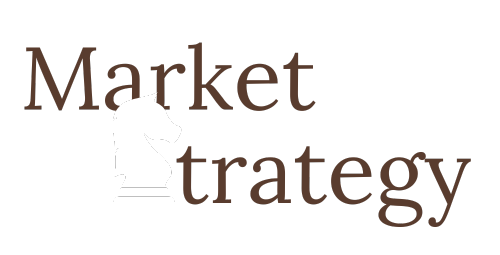It's easy to get lost in a sea of technical jargon and rapidly changing algorithms. You are looking for search engine optimization services that actually make an impact on a businesses' bottom line.
Driving Traffic, Leads, and Sales with Proven SEO Solutions
Setting an SEO Optimization Strategy
Content is King
Content Optimization for Better Engagement
Keyword Research and Intent Mapping
Earned Media Through Quality Backlinks
Metadata
Testing
Prioritizing SEO is Essential
Conclusion
The main purpose of search engine optimization (SEO) is to increase a website's visibility on search engines. The benefits that come from a great search engine optimization strategy are more visitors, leads, and sales.
Think of effective SEO as a roadmap that guides potential customers to your virtual storefront. This involves several techniques, such as targeting your ideal customer by understanding their search intent, crafting a clear message, and using advanced on-page and off-page SEO strategies that build trust and visibility. These all should align to current algorithms, such as with EEAT.
Technical SEO focuses on the backend of your site. It focuses on things like your site load speed and site structure.
Google has stated clearly for years, site speed is part of its algorithm in mobile and regular search. According to Google, they continue to add criteria, which can help improve the user experience.
Making sure search engines can access, crawl, and index your content helps your website rank. It’s like making sure the postal service knows your address so they can deliver mail.
Here are things you need to know to address those areas of the site:
Developing an effective search engine optimization (SEO) strategy will require continuous assessment. The first step should include core basics, new technologies, and analyzing results.
Below is a brief walk-through.
Perform a comprehensive site check to pinpoint both assets and deficiencies. Technical SEO issues, such as broken links, slow page load speeds, and usability on mobile, need attention. Reference initial website traffic, how you rank with target keywords and other terms, and your current conversions by applying Google Search Console, along with Google Analytics and popular programs that specialize in SEO, such as SEOMoz.
Content marketing is a critical piece of successful SEO because it aligns the keywords with what people are searching for and delivers your business as the solution. Having experience in that subject matter only makes the delivery better received. Focus on helping customers by creating SEO content.
Sharing interesting facts about a subject to better educate your audience with useful information will provide trust and be better received by search engines like Google. Quality content answers your ideal customers' biggest questions and positions your business to better capture their attention. An authoritative approach comes from crafting informative, educational copy that engages.
There are hundreds of things to pay attention to on pages across the internet to better compete. Ultimately a few core areas tend to help the most, and focusing on those can often deliver quick results. After we complete an initial analysis of core target metrics and goals, we get right into doing work on your actual site by taking care of these details:
On-page optimization: Focus on things like how title tags, content, and internal links perform, which needs optimizing, and then make changes based on the research.
Off-page SEO: This has to do with activities like link building and growing social media profiles and posting frequency.
Technical SEO: Make site structure improvements, such as loading speed, by leveraging tools like Google's Lighthouse testing tool.
These optimization services alone should immediately improve search visibility and search engine ranking.
Keyword research begins by uncovering what your customer market looks for online with how they type or talk about it. Think online searches, blog content, but also what they might share in person. Understanding language and knowing search intent helps fuel quality and relevance.
Combining keyword research and finding tools like Google Keyword Planner can be incredibly powerful. Look for words that aren't highly searched but also line up well with what your business delivers. Create topic clusters by developing main pages, then supporting articles around each major topic or theme, while improving a website's layout and how key topics perform.
Backlinks remain a primary factor in showing your business authority in your space online. Improving credibility with the number of websites linking back to you is similar to votes or shares. These get you into places of consideration or even better a top of consideration.
Getting quality backlinks isn't easy, but they add credibility and power over the course of time. Consider getting an SEO marketing company, like ours, with access to top talent and decades of experience in outreach and link acquisition. Or, if attempting a DIY plan, be prepared to give constant contact with a number of popular sources that provide high-quality content.
When developing any page on your website, there should be a section or input space within the source code where metadata lives. This data is what engines will process on pages to rank or index them.
Let's briefly look into this further:
Title Metadata: Title metadata will drive how search engines read a page, and that shows up in search results or on your browser. Be accurate with what the content is and use relevant terms that searchers might actually be typing.
Description Metadata: Think of the meta description like you might imagine marketing one-liners for businesses or descriptions about movies. It's essentially how things get presented in search engines to encourage a click and visit, hopefully in a positive and favorable light to help readers know it will be worthwhile.
Keyword Metadata: Keywords no longer make an impact, yet it is still a simple reminder, and it should be naturally what terms align with the page anyways. Make use of the input to place accurate terms as a reference on the back end. As always, make sure the real copy includes this terminology as well in natural-speak and how ideal customers talk in real life and search online.
Adding schema markup helps improve and speed up how quickly a site will process or index. Search engines are getting very good, yet using added measures like this improves content when being indexed in their databases. Adding schema markup is considered part of technical SEO.
A professional search engine optimization services team should offer a continued review of metrics and ways of improvement for clients.
This can be basic and high-level or get refined by tracking phone calls by adding call tracking analytics and form analytics. You can also analyze data within Google Analytics. There are many factors to study, so picking areas, even on pages that already do well to just attempt and refine conversion flow is a helpful testing practice that delivers massive upside.
With all of this data and the SEO strategy required, prioritizing all efforts correctly matters greatly, and it is where expertise is best applied. When needing surgery on a body, we put our trust in experts with deep medical understanding and knowledge.
We do this in faith based on what they claim they can do. In much the same way, this can work with marketing efforts to grow a business's presence and success. But why?
Know the business better than anyone
Core expertise with the ability to create supporting blogs, videos, or guides to give better clarity
Ability to hire additional expertise
Manage projects through completion
Experience and expertise working with different brands with different goals and objectives, often with very niche expertise
Ability to execute a marketing strategy from both marketing and technology, along with project management of ongoing projects
Teams of people with specialized roles such as marketing analysis, copywriter, and web developer roles.
Ability to prioritize initiatives for the greatest impacts that make businesses more money while using in-house project software to improve timelines
Effective SEO solutions must focus on experience, expertise, authority, and trustworthiness. This goes hand-in-hand with providing valuable insights into the subject at hand. Implementing an effective SEO strategy is one of the key aspects to overall success.
It's important to deliver quality SEO content consistently while placing value on accuracy and clarity above all else. This means being able to provide an enjoyable experience. Your customer should understands every step and all the pieces, parts, or terms involved to increase organic traffic.
By partnering with an experienced SEO specialist or SEO team, you gain access to their expertise and resources. Your business can then implement a custom SEO strategy, improve your search engine ranking, and ultimately achieve your online marketing goals. Successful SEO requires constant learning, adapting, and putting the user first.
.png)










